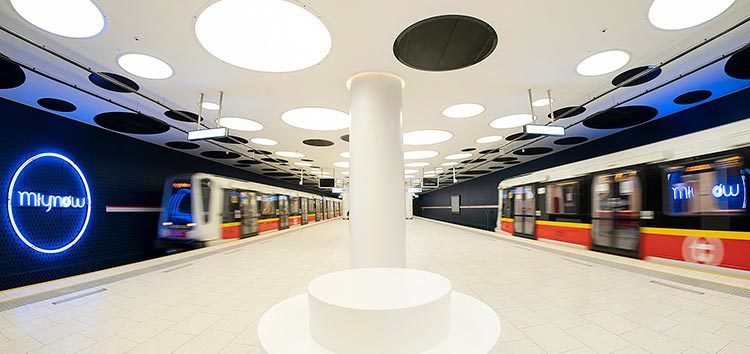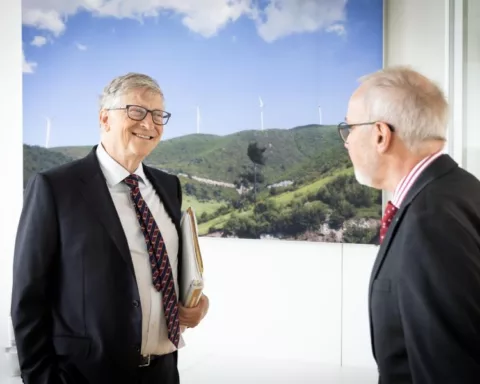- Poland’s first project under EBRD Green Cities
- Support for Warsaw’s single largest investment project to alleviate congestion
The inhabitants of Warsaw, the most congested city in central Europe, will benefit from the expansion of its metro network – a project that the European Bank for Reconstruction and Development (EBRD) and ING are supporting by co-financing the acquisition of up to 45 new railcars.
The loan of PLN 392.5 million, which is being split equally between the EBRD and ING, for metro’s new train fleet is part of a wider financing package from the European Investment Bank (EIB) and the European Union (EU).
Up to 45 new metro trains will be put on the tracks of the extended Metro Line II, which is currently under construction, and will partially replace the old rolling stock operating on Line I. With daily traffic expected to reach 200,000 passengers, the new metro line will connect the city centre with residential and commercial areas that host over 40 per cent of Warsaw’s population.
The new trains are expected to reduce commuting times while offering a comfortable and environmentally friendly mode of transport.
Warsaw, the largest city in Poland, is facing the challenge of providing transport services for a growing population, while addressing its current poor air quality and high greenhouse gas emissions.
The capital is taking steps to tackle those challenges by participating in the environmental initiative EBRD Green Cities – and being the first city in Poland to do so – as well as taking part in the climate leadership group C40. The city’s Green City Action Plan, outlining the low-carbon and climate resilience development pathway for Warsaw, is supported with donor funds from Poland and the TaiwanBusiness – EBRD Technical Cooperation Fund.
Grzegorz Zieliński, EBRD Regional Director, Head of Central Europe and the Baltic States, said: “With this transaction we welcome Warsaw’s commitment to investing in modern public transport infrastructure while developing a comprehensive plan to improve its overall urban environment. We are proud to stand shoulder to shoulder with our partner, the City of Warsaw, in its endeavour to build a greener future for its residents.”
This project is in line with the EBRD’s strategy for Poland, which focuses on addressing climate change and promoting sustainable development.
“While investing in quality of life and social policy, we do not neglect investments in the city’s infrastructure and environment,” explained Rafał Trzaskowski, Mayor of Warsaw. “The extension of the metro network is a key task for the City of Warsaw that will bring many benefits; citizens will gain a fast and comfortable means of transport, and it will have an enormous positive impact on the environment, which is a priority for us. The City of Warsaw is the first Polish city to join the EBRD’s Green Cities initiative and is another step in the right direction”.
Marcin Kościński, Executive Director at ING Bank Śląski, commented: “At ING we strongly support projects related to the protection of the environment, as well as the improvement of quality of life within local communities, especially where poor air quality and traffic congestion have a large impact. ING’s participation in the syndicated loan for Warsaw metro also proves our strong footprint in the area on the local government market. We are proud to deliver such a prestigious financing solution for strategic urban infrastructure in the capital city of Poland”.
Cities account for three-quarters of greenhouse gas emissions and represent a prime opportunity to tackle climate change. Warsaw became a member of the EBRD’s Green Cities programme in June.
The €1.5 billion programme has grown rapidly since being set up in 2016. It helps each member city tailor solutions to its environmental needs with a unique combination of measures, all designed to move cities towards a lower-carbon and more liveable future. On joining the programme, cities undertake a trigger project with EBRD finance and craft their own Green City Action Plan, or GCAP, setting out further actions.
To date, the EBRD has invested in Poland in 449 projects worth €10.8 billion.Share this page:





